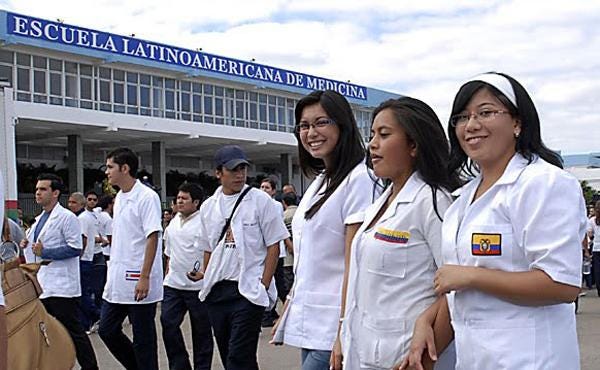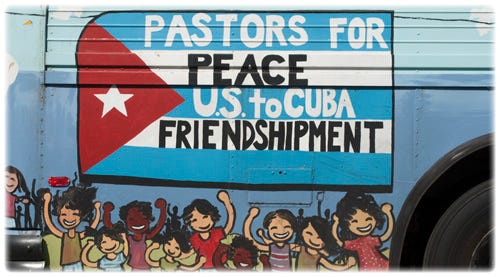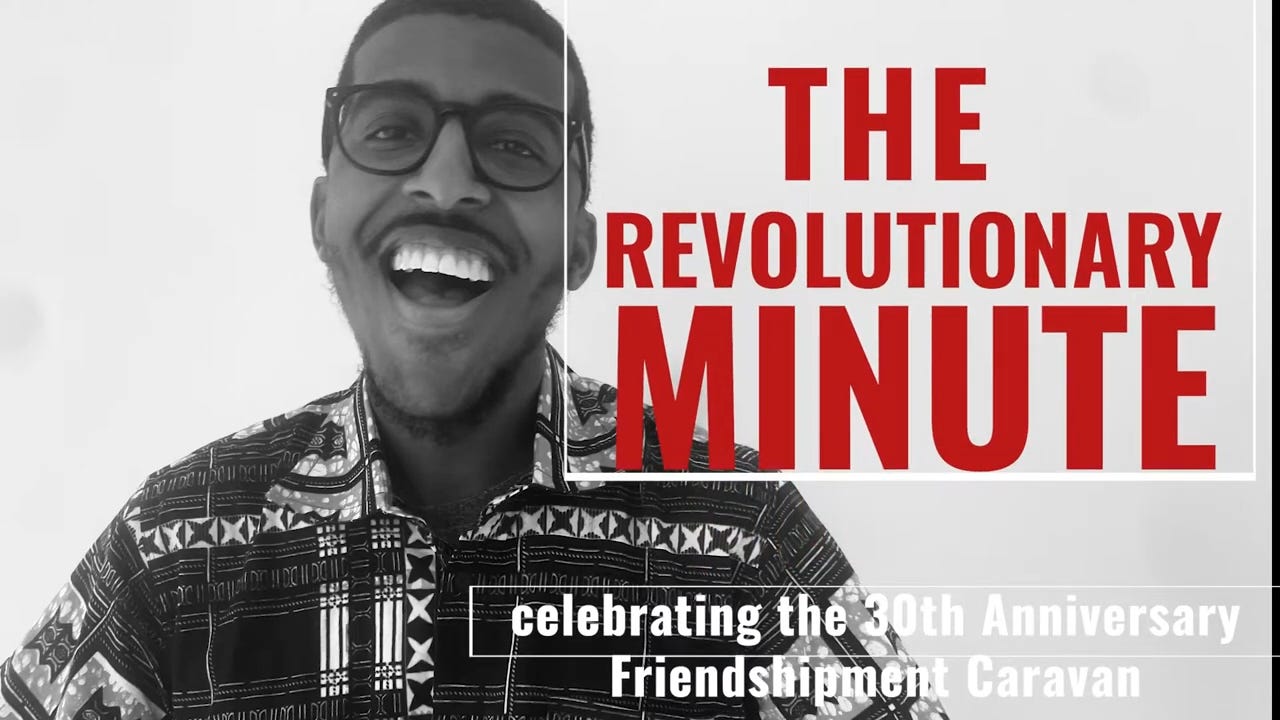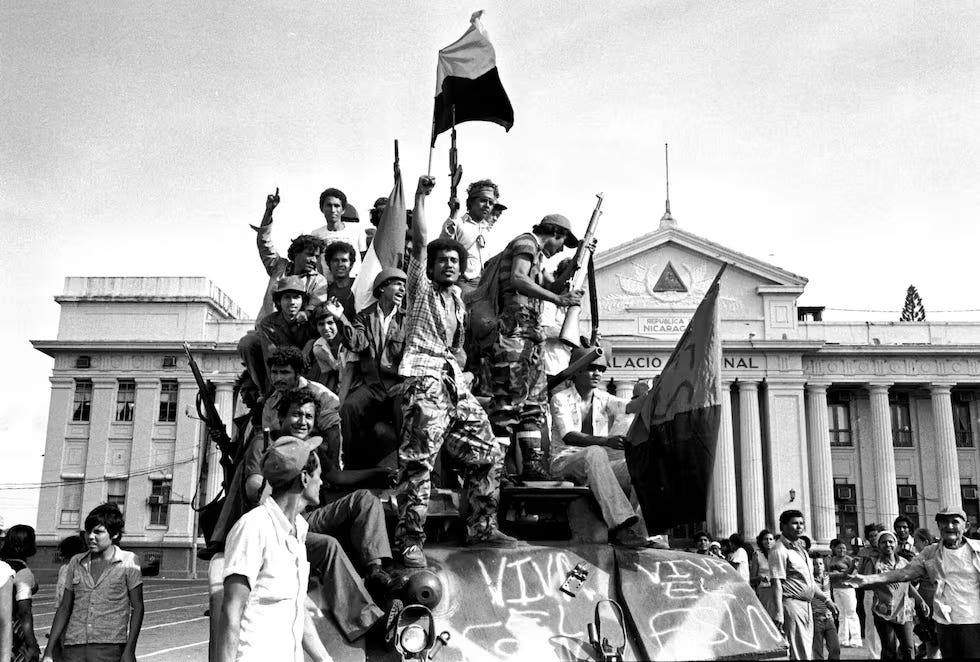Communist Cuba Connection: IFCO has orchestrated over 30 Friendshipment Caravans
Why is bringing back Cuban Cigars and Rum to the U.S. strictly prohibited, but bringing back communist Cuba-trained medical professionals not restricted?
The Interreligious Foundation for Community Organization (IFCO), established in 1967 as a faith-based nonprofit dedicated to advancing human and civil rights for marginalized communities, has emerged as a formidable force in anti-imperialist activism, with a pronounced commitment to socialist principles and deep connections to Cuba’s revolutionary legacy.
Through its Pastors for Peace initiative, IFCO has orchestrated over 30 Friendshipment Caravans since 1988, defying U.S. blockades by delivering humanitarian aid to Cuba, an act framed as resistance against American imperialism and a celebration of Cuban communism’s resilience. These caravans, involving leaders like Executive Director Rev. Claudia De la Cruz and board member Dr. Rosemari Mealy, underscore IFCO’s alignment with Cuba’s socialist model, which it promotes as a counter to capitalist exploitation.
IFCO’s financial backbone, with 2023 revenues of $1.6 million from progressive foundations like NEO Philanthropy ($235,000 for organizing), Borealis Philanthropy ($200,000 for Haitian refugee advocacy), and the New York Community Trust ($140,000 for fiscal sponsorship), fuels its anti-capitalist mission, enabling grants to over 100 grassroots projects that challenge U.S. dominance.
De la Cruz, a 2024 Party for Socialism and Liberation presidential candidate, uses platforms like Instagram and TikTok to rally against U.S. empire, advocating socialist reconstruction at protests in Raleigh and forums on Palestine. Mealy, a Black Panther alumna honored with Cuba’s Friendship Medal, ties Black liberation to Cuban revolutionary history, speaking at Miami caravans and New York rallies against U.S. sanctions, framing them as imperialist aggression.
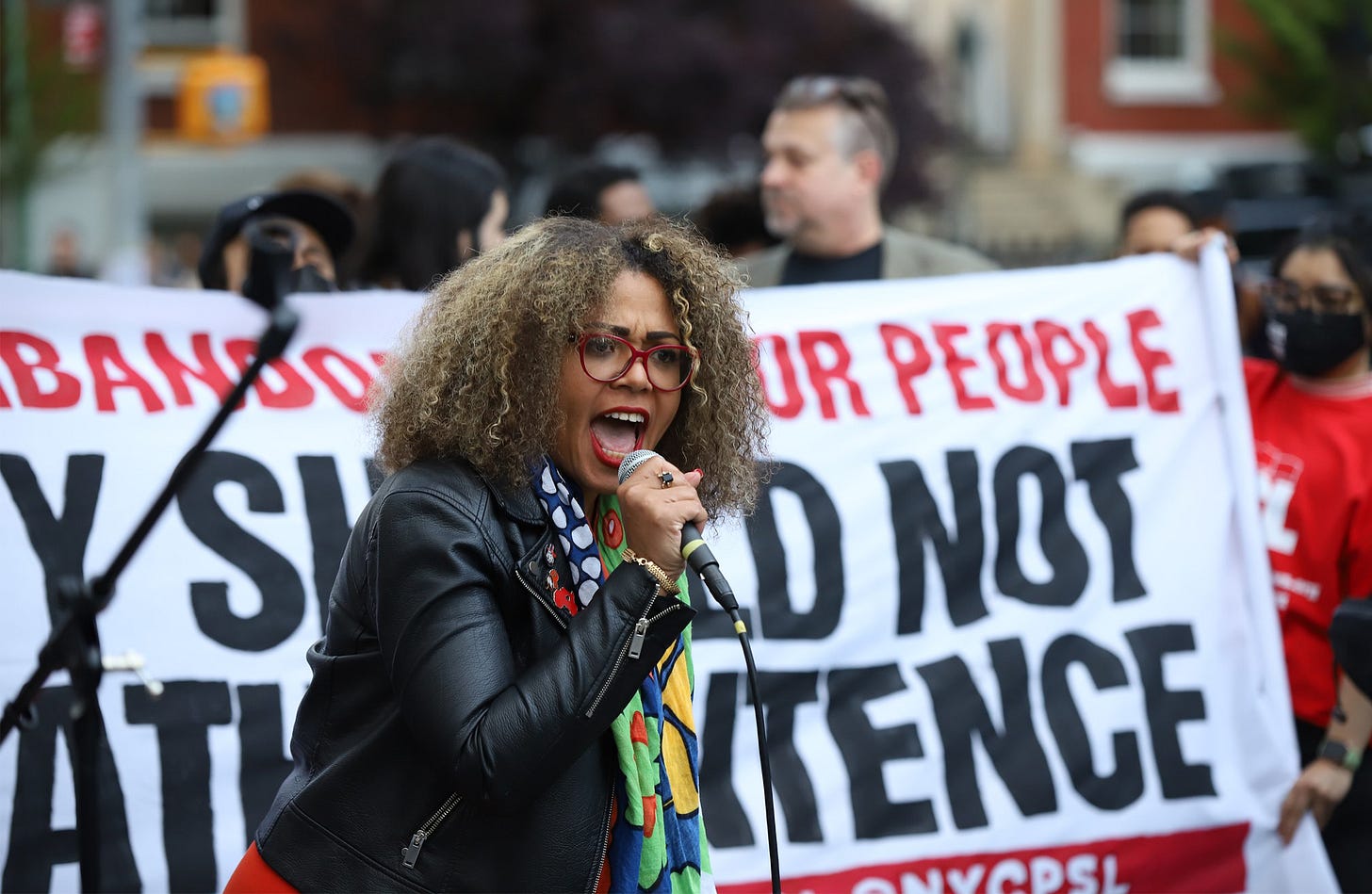
IFCO’s Cuba connections are exemplified through its partnership with the Latin American School of Medicine (ELAM), which has graduated 245 U.S. physicians committed to a “humanistic and solidary” model rooted in Cuban communism. Dr. Samira Addrey, ELAM Coordinator and Havana-trained physician, articulates this vision in a video: “As graduates of ELAM, shaped by Cuba’s educational model, our mission is to return home and embody an alternative vision—a different way of training physicians rooted in both science and conscience. We continue this work through organizations like IFCO/Pastors for Peace, striving to inspire new generations who reject becoming mere cogs in the capitalist machine. After all, such a system does not foster good doctors; it dehumanizes the profession.”
With 101 graduates in fields like integrative medicine and 144 in residencies across 30+ U.S. states, ELAM alumni amplify IFCO’s anti-imperialist ethos, rejecting American healthcare’s profit-driven framework.
Leaders like De la Cruz and Mealy, alongside board members Rev. Luis Barrios and Ajamu Amiri Dillahunt, participate in Cuba delegations—such as the 2024 Black Social Justice Activists trip—and protests like the 2025 Freedom Ride, condemning U.S. policies.
Historical ties to Nicaragua’s Sandinista movement and Vietnam-era activism further cement IFCO’s communist solidarity, though Cuba remains the focal point of its travel and advocacy. IFCO’s leadership embodies this anti-American, pro-communist stance through public actions and online platforms, with De la Cruz’s social media denouncing capitalism as dehumanizing and Mealy’s speeches linking Fidel Castro’s legacy to global resistance.
Board members like Barrios and Dillahunt join rallies and forums, from Racine to New York, advocating Marxist-inspired justice, while coordinators like Emily Thomas (1978 Cuba visit) and Elice Higginbotham (four faith delegations) strengthen ties through repeated Cuba trips.
IFCO’s caravans, delivering four tons of aid in the 31st edition, serve as both practical support and symbolic defiance, with leaders waving flags and chanting against the “illegal blockade” at border rallies. By blending ecumenical faith with militant socialism, IFCO positions itself as a bridge between spiritual and revolutionary resistance, advocating for a vision of a world free from U.S. imperial dominance, inspired by Cuba’s enduring socialist experiment. This activism, ignites a serious debate as to why these organizations are still permitted to travel, educate and train in communist Cuba, only to spread this poisonous ideology back home in the United States of America.


